|
Genres, Themes, Actors, and Directors:
- Biopics
- Dan Dailey Films
- Disabilities
- John Ford Films
- John Wayne Films
- Marital Problems
- Maureen O’Hara Films
- Military
- Ward Bond Films
- Writers
Review:
John Ford’s affectionate homage to his screenwriter friend Frank “Spig” Wead — perhaps best knowing for writing the play upon which Howard Hawks’s Ceiling Zero (1936) was based, and for scripting Ford’s They Were Expendable (1945) — is a classic inspirational biopic which plays loose with the facts to portray a man obsessively dedicated to his craft, living through a troubled marriage, and rallying to recover after a seemingly devastating accident. The film’s best-known scene shows the ever-chipper Dailey encouraging Wayne to “move that toe!” and get circulation back into his paralyzed body:
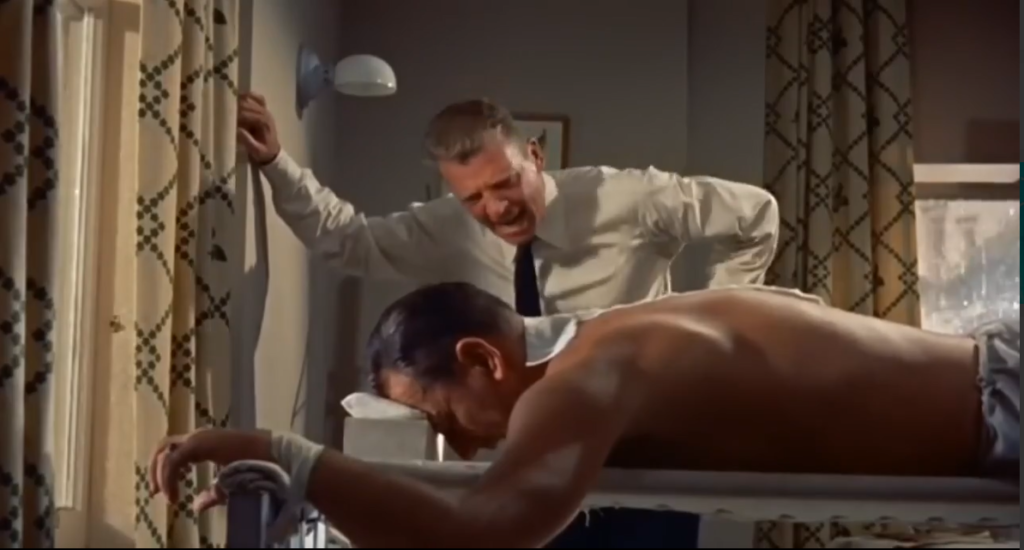
… which, by gum, he manages to do. Ward Bond has fun impersonating a Ford-like director who gives Wayne his chance at success in Hollywood:
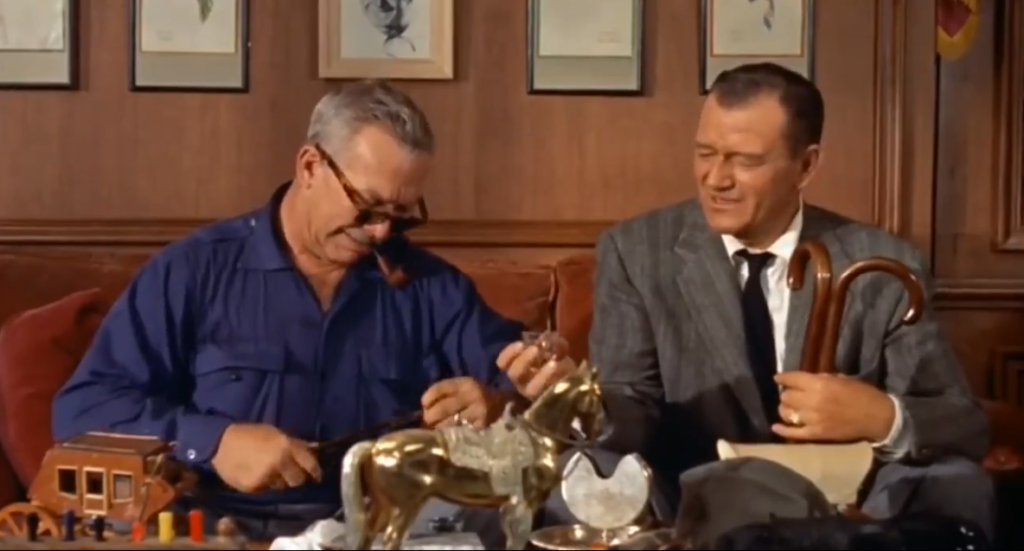
… and O’Hara is ever-feisty as his disillusioned wife (who somehow thinks it’s okay to leave her young girls alone at home to fend for themselves while she’s off at a bridge club; what a different era that was).
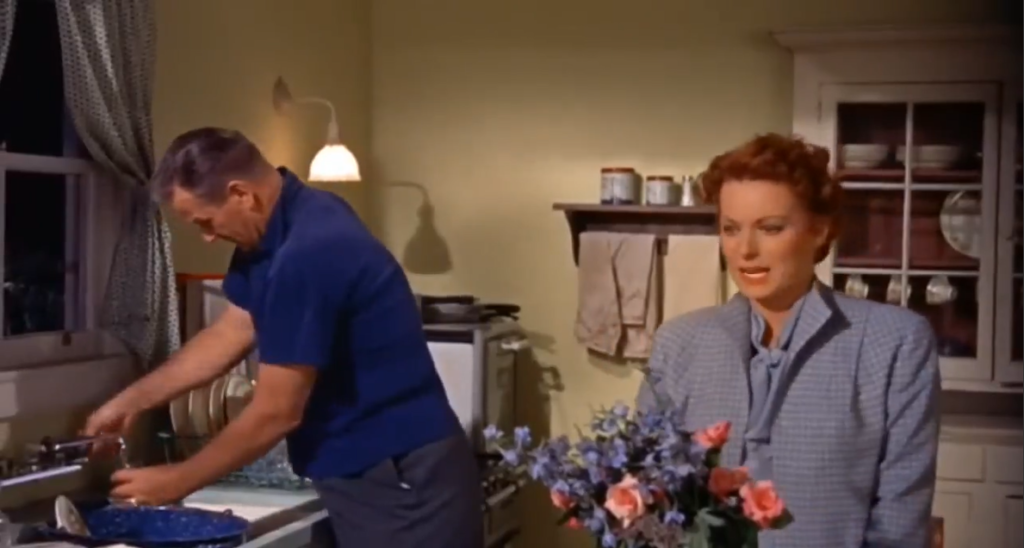
This one is only must-see for John Ford completists or diehard fans of the lead stars.
Notable Performances, Qualities, and Moments:
- Fine cinematography
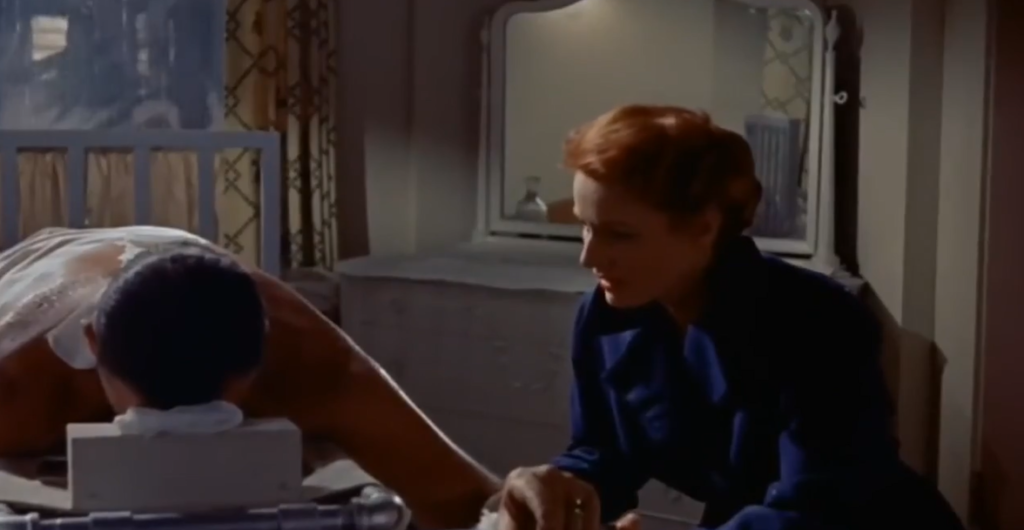
Must See?
No; you can skip this one.
Links:
|
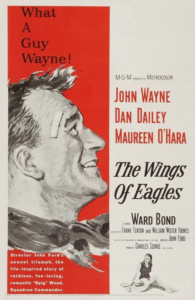




One thought on “Wings of Eagles, The (1957)”
First viewing (2/15/22). Not must-see.
A rather ho-hum biopic… until it gets a little more interesting in the last 30 minutes when Wayne’s character (noted playwright and screenwriter Frank Wead) begins his writing career.
It’s a little disturbing early on to see Wayne come home for a visit – seeing that his two little girls are left there alone while their mother (O’Hara) is off playing bridge (!).
Ford apparently felt a real connection with this film since he and Wead were friends – and Ford directed one of Wead’s scripts, ‘They Were Expendable’. Still, the film feels a bit like it’s all over the place when it might have been better if it had focused more on the latter part of Wead’s life instead of just giving that a half-hour.